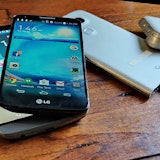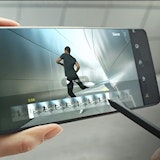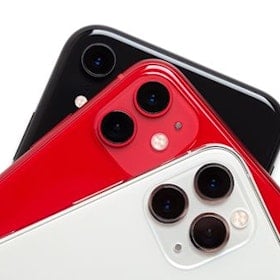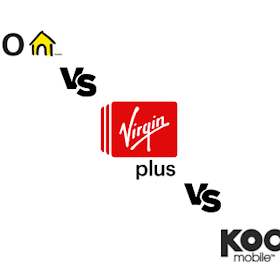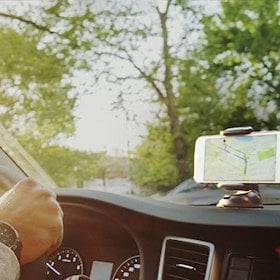 85/100
85/100
Square watches getting you down? LG has the answer: the LG G Watch R. It’s one of only two round-screened smartwatches on the market right now, the other being the Moto 360. It's a very different experience to wearing the more-familiar squared-off kind.
It’s not that a circular screen gives you different functionality; it’s how it makes you feel. There’s less of a self-conscious feeling that you’re walking about with a, obvious piece of tech strapped to your wrist.
Round screens are socially-acceptable, even fashionable. We wouldn’t have thought it would make too big a difference before wearing one around for a few weeks, but it does. People, non-gadgety people, actually seem to like the G Watch R. It’s a conversation starter and even an object of desire, rather than a curiosity to be dismissed as easily as it was spotted, or even a new-fangled contraption worthy of derision.
Shape, it seems, is important. And fashion is king. Luckily, the G Watch R appeals to both to some degree.
However, one question still can’t be answered at a glance: is this smartwatch good enough to justify its spot on your wrist and a charge every night, or are we still not quite there yet? The answer is a bit of both.
Design
The G Watch R actually looks like a watch. Not the classy boardroom meeting kind, mind you. It’s more of a bulky sport-watch affair complete with minute marks around the edge of the screen and extra housing at the top and bottom of the display, which is all necessary to provide that totally circular panel.
It’s not beautiful, but it is unassuming, which is something that few smartwatches have so far accomplished. It just looks like a run-of-the-mill, stock-standard wrist accessory, rather than a techno statement about how up-to-the-minute your gadget arsenal is.

In terms of feel it’s decently comfortable. Many users might find it chunky at first, but if you’re used to modern sport-watch designs you’ll find it familiar. One small complaint is the location of the one and only button, which doubles as a lock key and a way of accessing the menus.
Aesthetically the placement is great. It looks just like a regular winding stem, thus adding to the unassuming ‘regular watch’ picture. Unfortunately, because it is designed to be pushed rather than turned, you can end up activating it every time you bend your wrist back. It has to be a pretty severe action, but it’s one you’ll perform every time you’re pushing off of a surface, like when you stand up from a sitting position.

A bigger problem is the materials. The watch housing is all plastic. That’s all well and fine in something like the LG G3 phone, where it doesn’t go out of its way to remind you. Unfortunately, that hasn’t been done here. Very little effort has been made to conceal its plastic nature, making it feel like a cheaper device than it is.

The watch band, too, doesn’t win any awards. It creaks when you flex it and quickly becomes wrinkled and misshapen in areas that regularly bend or are held by the clasp. Happily, the strap is a standard 22mm, meaning you can swap it out for any other band of the same size.
At a glance

By default, the G Watch R’s screen is set to always-on mode. This means that it runs in a darkened, but still visible setting while it’s idle and will brighten up when you tilt it towards your face or press the lock button.
The watch faces themselves are useful and generally quite attractive. If you can’t find one that you like then there are plenty of free ones to choose from in the Google Play store.
You can choose between a simple watch face, or one that always shows the weather or your upcoming appointments for the day.

One big problem that smartwatches face is viewing in direct sunlight. The G Watch R still suffers this problem, but not quite as much as some, like the original G Watch. The panel is as reflective as ever, but the P-OLED screen is a big step up from the IPS LCD panel on its predecessor.
P-OLED tends to be brighter, so it combats light reflection more effectively. There was still a bit of squinting in direct sunlight, but at the very least it was usable.
Cards and notifications

Here’s where Android Wear really needs to prove itself. Has Google made a system that is easy and useful enough to justify its place on your wrist, nightly charging and the money you drop on a smartwatch; or is it still only going to appeal to folk that get a kick out of tech? To be honest, it’s probably the latter, but it’s closer than any smartwatch OS has come so far to having universal appeal.
The user interface and general functionality is identical on all Android Wear smartwatches. It relies predominantly on a card interface where cards (notifications) are generated automatically based on your phone’s notification settings. You scroll through them vertically, swipe them to the right to delete and to the left to either take action or view them in more detail.
You can also have cards generated based on periodic weather updates, pedometer activity and for controlling any media you are currently playing.

The media function is very useful. Playing audio through any program will give you the option to pause and play right from your watchface. Swiping to the left brings up volume and track skipping controls. It’s a really easy way to manage your active music, especially if your headphones don’t have built-in controls
Ok, Google
Just like on many an Android, saying “Ok Google” activates the Google Now search/personal assistant service. This time around you have to long-press the watchface in order to bring the option up.
It works pretty well, but if you have a phone that is also voice-activated you can end up performing the same Google Now request on both devices simultaneously, which is a bit annoying. Google really needs to take Motorola’s lead and let you make custom phrases for activating its voice interface.
Battery life

Battery charge is a big deal with smartwatches. After all, when your user interface is identical, all you have to differentiate yourself is physical design, screen quality and how long you can keep using it before you need a power cable.
The LG G Watch R easily lasts a day with the screen set to always-on mode. We never had to go searching unexpectedly for a power outlet.
Switching the screen to turn off when idle almost pushed that to two days, but not quite.

One problem is that the charging dock (the phone has no USB port) comes loose very easily. If it’s on even the slightest angle there’s a good chance your watch will disconnect and stop charging.
This is exacerbated by how light the dock is. A regular micro USB cable is barely weighed down by it at all. If your cable isn’t carefully positioned, chances are it’ll push the dock off balance. This was by far the most commonly recurring issue we had.
Verdict

The LG G Watch R is the best smartwatch we’ve yet reviewed (keeping in mind we haven’t got our hands on a Moto 360 for a lengthy period so far).
The round screen makes it more comfortable to wear, both physically and socially, and the switch to P-OLED from IPS LCD means it’s easier to view and use. It would be nice if LG put a little more effort in to prettying-up the plastic housing around the display. The watch band, too, feels cheap and could do with a makeover. At least you can always do that one yourself.
Battery is a reliable full day, even if the charger is a bit annoying. Android Wear is a good smartwatch OS, but right now it still doesn’t feel like it adds enough to draw the non-technophile crowd.
If you’re specifically after a smartwatch then you should absolutely check out the LG G Watch R. Even though it's one of the most expensive options, it's the first smartwatch we've reviewed that didn't come packaged with a free serving of self-consciousness and complimentary social discomfort.
On the other hand, if you’re still on the fence as to how useful a smartwatch would be in your life, the answer is still a resounding “kind-of”.
Related Articles
Find Better Phones and Plans
Hundreds of cell phone plans unpacked. All the facts. No surprises.


